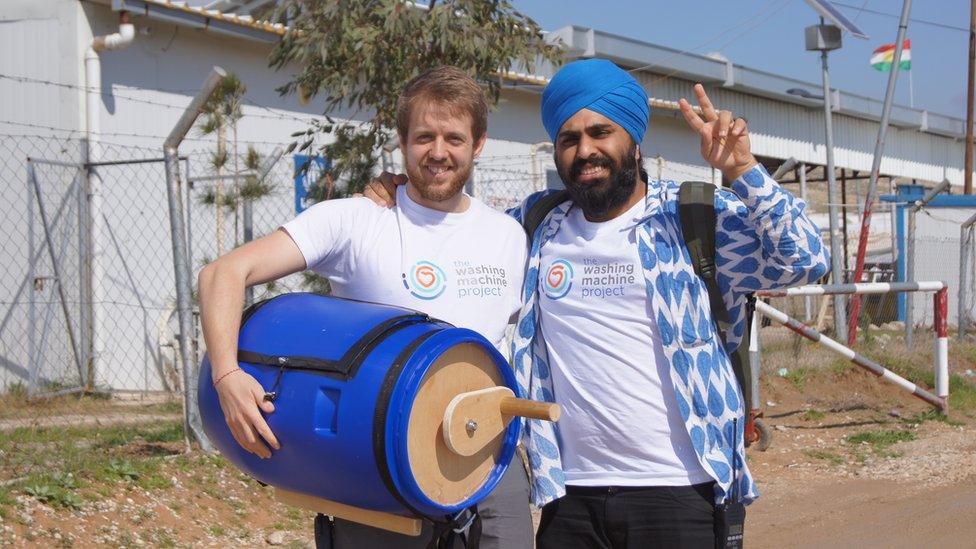University of Bristol students improve manual washing machine design
- Published
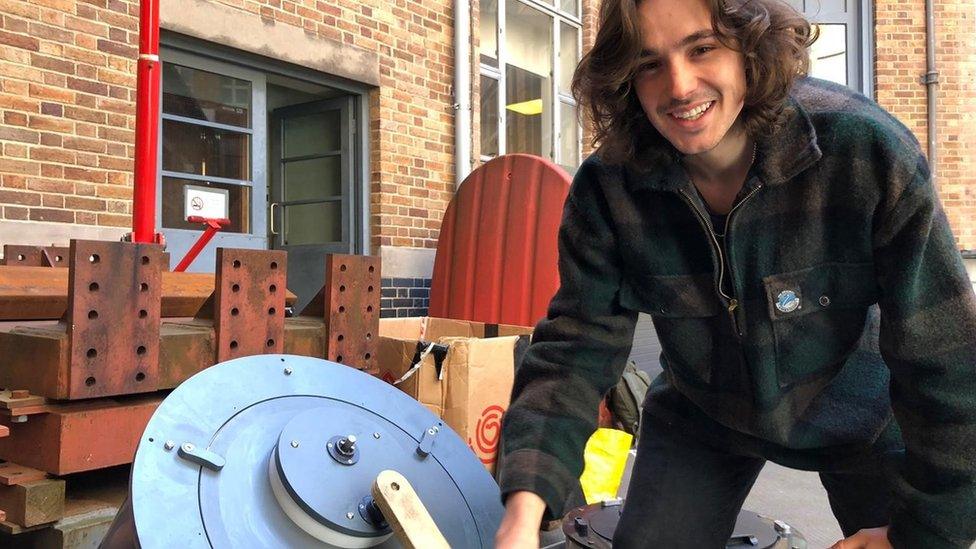
Student Joe Denny helped develop the new design
Students at the University of Bristol have been helping to improve the design of manual washing machines, which are given to refugees around the world.
The new design includes a vertical drum, meaning users should find it easier when turning the crank.
It is also lighter and uses less water than before.
The machine was invented by Bath student Nav Sawhney, who said the cost of living crisis meant he was now getting requests from people in the UK.
"It's very much like our washing machines at home," explained student Henry Giudici, who worked on the project.
"Essentially it turns round in a circle. There are two different mechanisms: an impeller, allowing the clothes to rub against each other to remove stains, and an agitator that rubs against the clothes itself," he said.
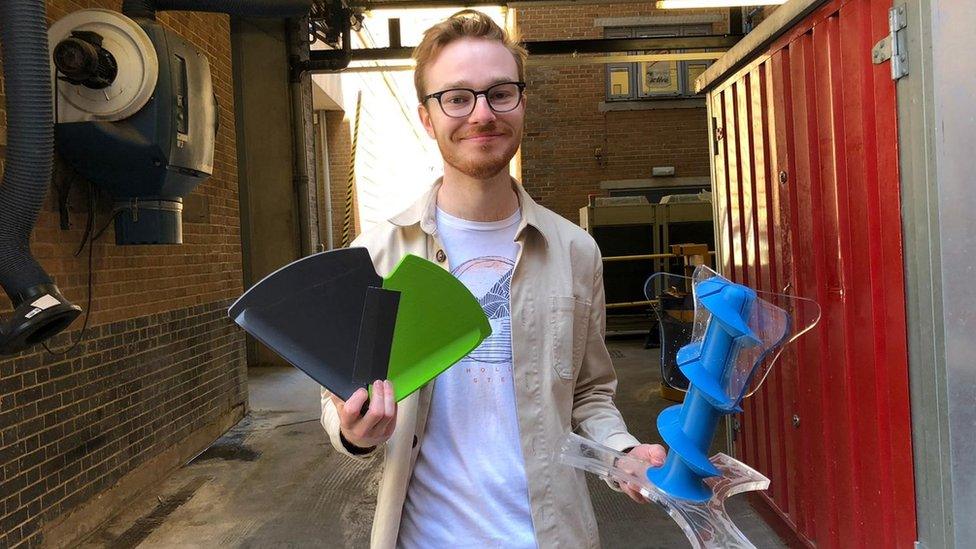
Henry Giudici with the different mechanism designs
In the developing world washing clothes for a family of six can take about 20 hours per week, but the team behind the new machine believe it could cut that time in half.
"We started with coffee, dirt and tomato. After one standard cycle stains are largely removed and that's a really good performance rate especially with cold water," said student Paul Ertl.
The machines were first created by Mr Sawhney - founder of The Washing Machine Project - while he was studying in Bath.
Mr Sawhney was inspired to develop it while he was volunteering in India having quit his engineering job in Wiltshire, and he witnessed his neighbour struggling when washing clothes.
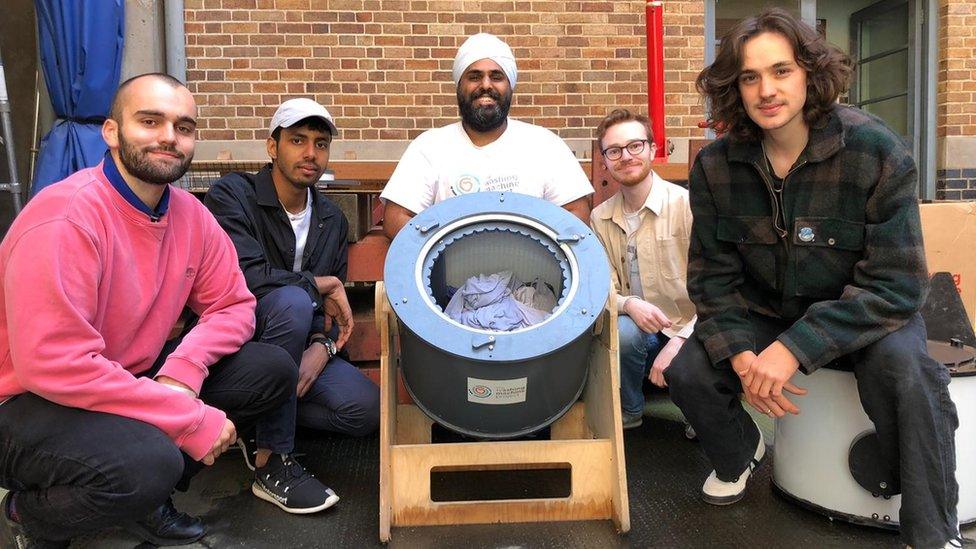
Students Paul Ertl, Kareem Elahee Doomun, Henry Giudici and Joe Denny (l-r), with inventor Nav Sawhney (centre)
The low-cost device has since been distributed all over the world, but Mr Sawhney said he has been getting inquiries from people in the UK.
"It's quite heart-breaking some of the phone calls we get.
"I'd say 15-20% of our requests are now from here in UK from people who can't afford bills," he said.

Follow BBC West on Facebook, external, Twitter, external and Instagram, external. Send your story ideas to: bristol@bbc.co.uk , external
Related topics
- Published22 September 2021
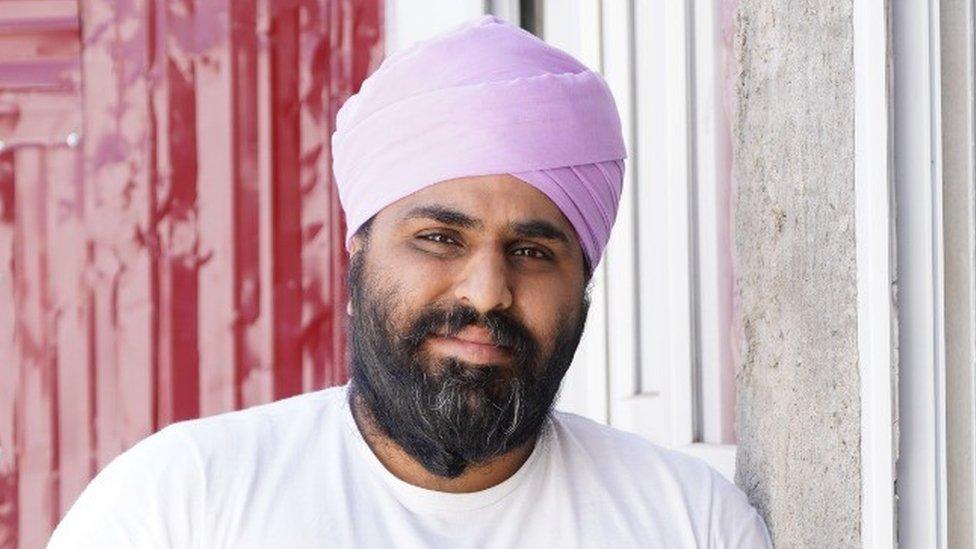
- Published13 August 2021
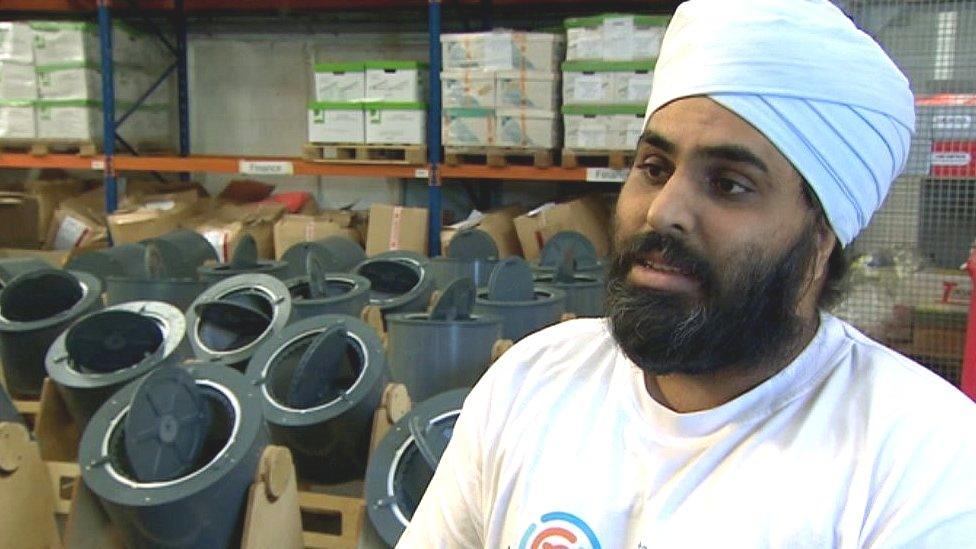
- Published24 April 2021
